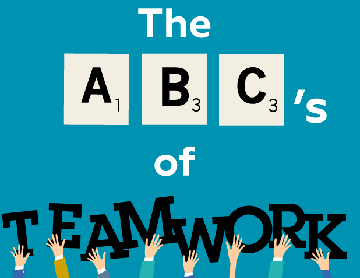Importance of Effective Communication and Relationship Development

Leadership roles vary considerably, with variances in titles, organisational structure, industry type, working environment and a myriad of other differences that exist in our workplace today. However, even though the titles and position descriptions may vary widely, in reality there is one common denominator and responsibility for all leaders. They all depend upon the fundamental need to work with and through other people.
Generally, leadership involves gaining commitment from those you lead so that they understand their part in the overall vision of the organisation and are committed to achieving its success. Leadership involves the ability to communicate, to persuade, to encourage and to inspire people to take meaningful and productive actions. Leadership involves developing trust through positive and open relationships.
Peter Drucker said, “Leadership is not rank, privilege, title or money. It is responsibility”. To achieve the best results with and through others, all leaders must be willing to take on the responsibility of developing effective communication and relationship development skills. Leaders who develop these skills and work effectively with and through others, produce the most outstanding results.
The importance of effective communication across all levels and organisations has never been as profound as in today’s fast changing diverse and multicultural workplace. Effective communication and relationship development is the lifeblood that flows through the organisation’s arteries keeping it functioning, healthy and alive. The pace of modern business means that people are sending and receiving more messages, instructions and other types of communication than ever before. People are also under greater pressure to understand and implement new processes and changes whilst being expected to fulfil higher standards. At the same time team structures are changing frequently, requiring new team member to be brought up to speed as quickly as possible and new relations developed for optimum performance. Customer relationships can also be made or broken by communication.
You and other members of your team and organisation share a unique relationship based upon common goals for the organisation. Effective communication binds all of the members of these complex relationships together enabling everyone in the team to achieve the desired outcomes.
Constructive communication and persuasion saves time and effort, encourages co-operation and reduces stress. Developing these kills enables you as a leader to prevent difficult situations, communicate team goals, foster self-esteem, generate mutual respect and enrich the relations that underpin a positive working environment conducive to high performance. In other words, good communication and relationships improve the productivity and performance of the team.
On a personal level, communication is the first interaction when meeting new people. It builds and maintains relationships. In fact, the quality of communication is typically the underlying reason for all relationships succeeding or failing. Communication is the glue that binds friendships together and fosters caring family relationships.
The fact that organisations require effective communication skills from all leaders and managers cannot be over emphasised.
Everything they do involves effective written and verbal communication with others at all levels within the organisation to achieve a number of primary objectives:
- To gather information
- To impart information
- To provide instruction
- To provide data throughout the various levels of the organisation
- To provide feedback
- To praise and discipline
- To train
- To control
- To enable emotional expression
- To engage, empower and motivate
As a leader consider the impact your communication has on the relationships within your team. Engaging and motivating your people to perform at their best requires meaningful communication. However, the first step in developing effective meaningful communication is to understand that it is a two-way street and, as the leader, you must be sensitive to and aware of other’s needs and perspectives. Too often, average leaders adopt the approach that “people need to do what I say as that’s my role”. In today’s world, where employees are volunteers, they choose to work within organisations where they are both wanted and appreciated, that old school attitude barely achieves average results.
Successful leaders of today are sensitive to the needs of their people, understand what motivates them and use their communication skills to align the needs to their team member’s goals with the goals of the team. They know the value of building respectful and positive relationships.
During the September to December 2018 quarter, The Leading Edge will provide tips and ideas on how our readers can develop their leadership through improved communication and relationship development.
I encourage all leaders to set a goal to commit themselves to improve their communication skills and build stronger and more positive relationships at all levels.
Grant Sexton
Founder and Chairman





